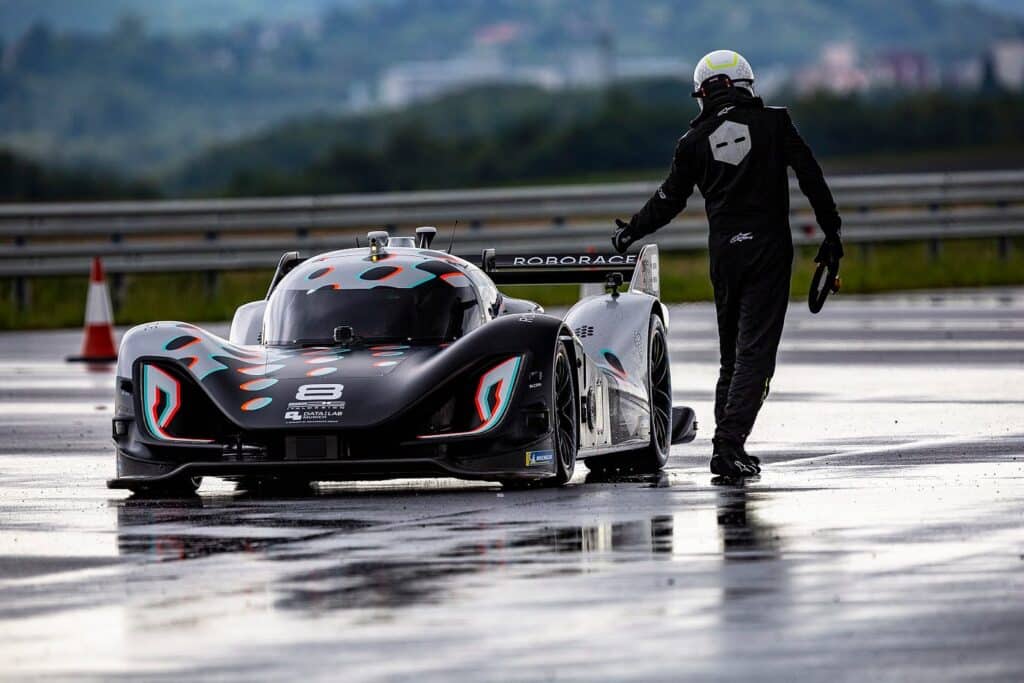In the high-octane world of automotive racing, particularly within prestigious teams like Scuderia Ferrari, artificial intelligence (AI) and data analysis have become indispensable tools for enhancing performance and strategy during races. The integration of AI enables the real-time processing of a vast array of data, encompassing various aspects crucial for a successful race outcome. For instance, AI has been instrumental in optimizing pit stop strategies, predicting tire wear, and suggesting optimal racing lines. This article delves into the pivotal role of AI in Scuderia Ferrari’s racing endeavors and explores how this technology is revolutionizing their approach to racing.
Telemetry Data Analysis
Vehicle Telemetry: The backbone of racing performance lies in the telemetry data collected from the vehicle. This data includes crucial metrics such as speed, acceleration, brake usage, steering angle, and other dynamic variables. With their unparalleled precision, AI systems analyze these data points to optimize real-time performance, offering insights that can lead to immediate strategic adjustments. For instance, if telemetry data indicates excessive tire wear or suboptimal brake performance, the AI can suggest real-time adjustments to the driver’s approach or inform the pit crew of necessary modifications.
Engine and Component Monitoring
Engine Health and Component Monitoring: Advanced sensors monitor engine conditions, temperature, oil pressure, and other vital indicators to prevent mechanical failures. With their proactive approach, AI algorithms predict potential issues before they occur, allowing for preemptive interventions. This predictive maintenance approach is crucial in a sport where mechanical reliability can make or break a race.
Artificial Intelligence helps maintain the car’s peak performance throughout the race by ensuring all components operate within optimal parameters.
Tire Strategy Optimization
Tire Strategy and Track Conditions: Tire management is one of the most critical elements in racing strategy. AI plays a significant role in analyzing tire wear and track conditions to determine the optimal timing for pit stops and selecting the most suitable tires. This analysis includes real-time data on tire temperature, pressure, and degradation rates. AI helps teams like Scuderia Ferrari maximize their track performance and maintain a competitive edge by accurately predicting the best moments for tire changes.
Weather Adaptation
Weather Conditions: Real-time weather data processing is another domain in which AI excels. Racing teams rely on AI to forecast weather changes during the race, such as rain or temperature fluctuations. These predictions influence strategic decisions, including tire choice and vehicle settings. For example, if AI predicts imminent rain, the team can preemptively switch to wet-weather tires, gaining a significant advantage over competitors who may react slower to changing conditions.
Competitor Analysis
Competitor Positioning and Strategy: Analyzing competitors’ positioning and lap times is crucial for planning overtakes or defending against them. AI systems, with their strategic insights, process these data points to help strategists adapt their race plans dynamically. By understanding competitors’ strengths and weaknesses, Scuderia Ferrari can tailor its strategies to exploit opportunities and mitigate threats, ensuring it stays ahead in the race.
Simulation and Scenario Prediction
Simulations and Forecasting: AI-driven simulations based on real-time data allow teams to predict various race scenarios and make informed tactical decisions. These simulations consider multiple variables, including track conditions, competitor behavior, and vehicle performance. By running these scenarios, the AI can provide strategic recommendations that enhance the team’s ability to respond effectively to evolving race conditions.
Communication and Decision Support
Team Communications and Decision Making: AI also aids in managing communications between the driver and the team, filtering crucial information and facilitating rapid, informed decisions. In the heat of the race, clear and concise communication is vital. AI systems ensure that only the most relevant information reaches the driver, reducing cognitive load and allowing the driver to focus on performance.
Conclusion
Implementing artificial intelligence tools enables the optimization of numerous aspects of racing performance, significantly enhancing the chances of success for teams like Scuderia Ferrari. However, it’s important to note that AI is not a panacea and has limitations. For instance, it relies heavily on the quality and accuracy of the data it processes. From telemetry data analysis to predictive maintenance, tire strategy optimization, weather adaptation, competitor analysis, and real-time simulations, AI is transforming the landscape of motorsport. By leveraging these advanced technologies, Scuderia Ferrari continues to push the boundaries of racing excellence, maintaining their legacy as a dominant force in the world of automotive racing.
Call to Action
If you are fascinated by the innovative use of AI in motorsport and want to learn more about how these technologies can revolutionize performance and strategy in various industries, contact Convergence Consulting. With over a decade of experience in AI integration and a team of expert engineers dedicated to optimizing business operations, we are well-equipped to help you leverage cutting-edge AI solutions. Contact us today to discover how we can help you stay ahead of the competition.


Leave a Reply